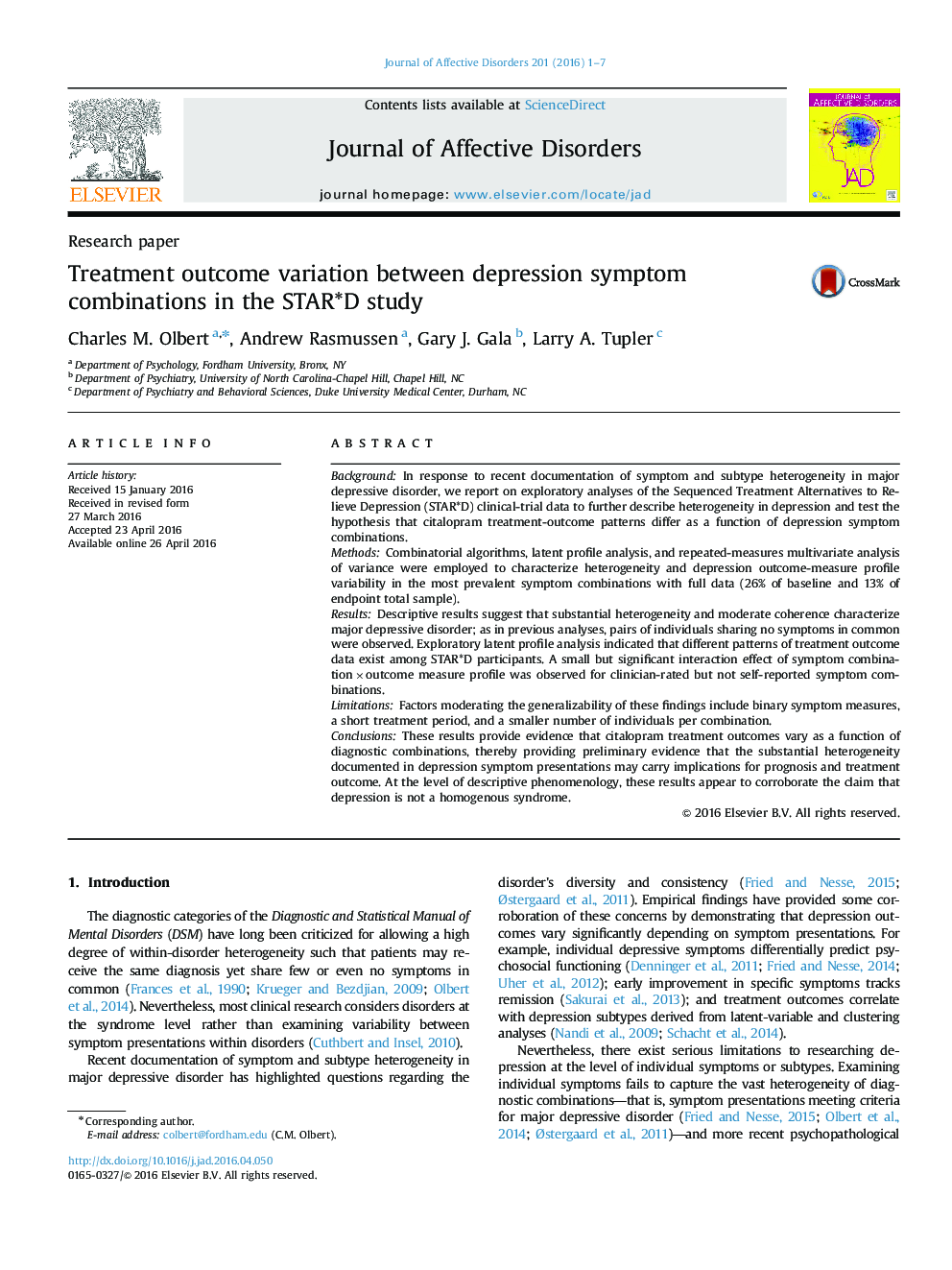| Article ID | Journal | Published Year | Pages | File Type |
|---|---|---|---|---|
| 6229980 | Journal of Affective Disorders | 2016 | 7 Pages |
â¢Depression heterogeneity is examined at the level of symptom combinations.â¢Pairs of individuals sharing no symptoms are common in major depressive disorder.â¢Antidepressant treatment outcomes show small variations as a function of symptoms.â¢Depression symptom presentation may therefore carry prognostic implications.â¢At the descriptive level, depression is not a homogenous syndrome.
BackgroundIn response to recent documentation of symptom and subtype heterogeneity in major depressive disorder, we report on exploratory analyses of the Sequenced Treatment Alternatives to Relieve Depression (STAR*D) clinical-trial data to further describe heterogeneity in depression and test the hypothesis that citalopram treatment-outcome patterns differ as a function of depression symptom combinations.MethodsCombinatorial algorithms, latent profile analysis, and repeated-measures multivariate analysis of variance were employed to characterize heterogeneity and depression outcome-measure profile variability in the most prevalent symptom combinations with full data (26% of baseline and 13% of endpoint total sample).ResultsDescriptive results suggest that substantial heterogeneity and moderate coherence characterize major depressive disorder; as in previous analyses, pairs of individuals sharing no symptoms in common were observed. Exploratory latent profile analysis indicated that different patterns of treatment outcome data exist among STAR*D participants. A small but significant interaction effect of symptom combinationÃoutcome measure profile was observed for clinician-rated but not self-reported symptom combinations.LimitationsFactors moderating the generalizability of these findings include binary symptom measures, a short treatment period, and a smaller number of individuals per combination.ConclusionsThese results provide evidence that citalopram treatment outcomes vary as a function of diagnostic combinations, thereby providing preliminary evidence that the substantial heterogeneity documented in depression symptom presentations may carry implications for prognosis and treatment outcome. At the level of descriptive phenomenology, these results appear to corroborate the claim that depression is not a homogenous syndrome.
